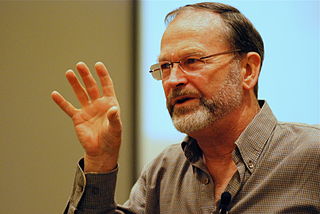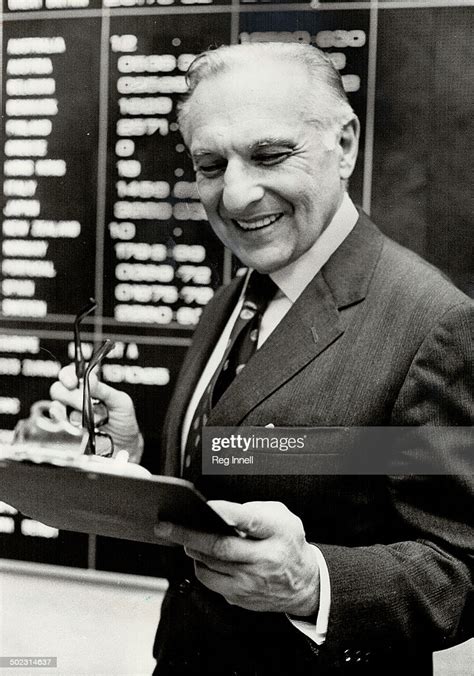A Quote by Hans F. Sennholz
For more than two thousand years gold's natural qualities made it man's universal medium of exchange. In contrast to political money, gold is honest money that survived the ages and will live on long after the political fiats of today have gone the way of all paper.
Related Quotes
Gold is not less but more rational than paper money. Money holds value so long as it is in limited supply; gold will always be in limited supply, and would require real resources to produce even from the sea; paper and printing ink are not in limited supply. The gold system is much closer to a modern automatic scientific control system than the crude and relatively unstable system of paper.
The international monetary order is more precarious by far today than it was in 1929. Then, gold was international money, incorruptible, unmanageable, and unchangeable. Today, the U.S. dollar serves as the international medium of exchange, managed by Washington politicians and Federal Reserve officials, manipulated from day to day, and serving political goals and ambitions. This difference alone sounds the alarm to all perceptive observers.
Gold is a way of going long on fear, and it has been a pretty good way of going long on fear from time to time. But you really have to hope people become more afraid in a year or two years than they are now. And if they become more afraid you make money, if they become less afraid you lose money, but the gold itself doesn’t produce anything.
Paper money is like dram-drinking, it relieves for a moment by deceitful sensation, but gradually diminishes the natural heat, and leaves the body worse than it found it. Were not this the case, and could money be made of paper at pleasure, every sovereign in Europe would be as rich as he pleased. But the truth is, that it is a bubble and the attempt vanity. Nature has provided the proper materials for money: gold and silver, and any attempt of ours to rival her is ridiculous.
My treasure chest is filled with gold.
Gold . . . gold . . . gold . . .
Vagabond's gold and drifter's gold . . .
Worthless, priceless, dreamer's gold . . .
Gold of the sunset . . . gold of the dawn . . .Gold of the showertrees on my lawn . . .
Poet's gold and artist's gold . . .
Gold that can not be bought or sold -
Gold.
Gold is unique because it has the age-old aspect of being viewed as a store of value. Nevertheless, it’s still a commodity and has no tangible value, and so I would say that gold is a speculation. But because of my fear about the potential debasing of paper money and about paper money not being a store of value, I want some exposure to gold.
Over two thousand years ago, Aristotle taught us that money should be durable, divisible, consistent, convenient, and value in itself. It should be durable, which is why wheat isn't money; divisible which is why works of art are not money; consistent which is why real estate isn't money; convenient, which is why lead isn't money; value in itself, which is why paper shouldn't be money. Gold answers to all these criteria.
The major asset in this category is gold, currently a huge favorite of investors who fear almost all other assets, especially paper money (of whose value, as noted, they are right to be fearful). Gold, however, has two significant shortcomings, being neither of much use nor procreative. True, gold has some industrial and decorative utility, but the demand for these purposes is both limited and incapable of soaking up new production. Meanwhile, if you own one ounce of gold for an eternity, you will still own one ounce at its end.































